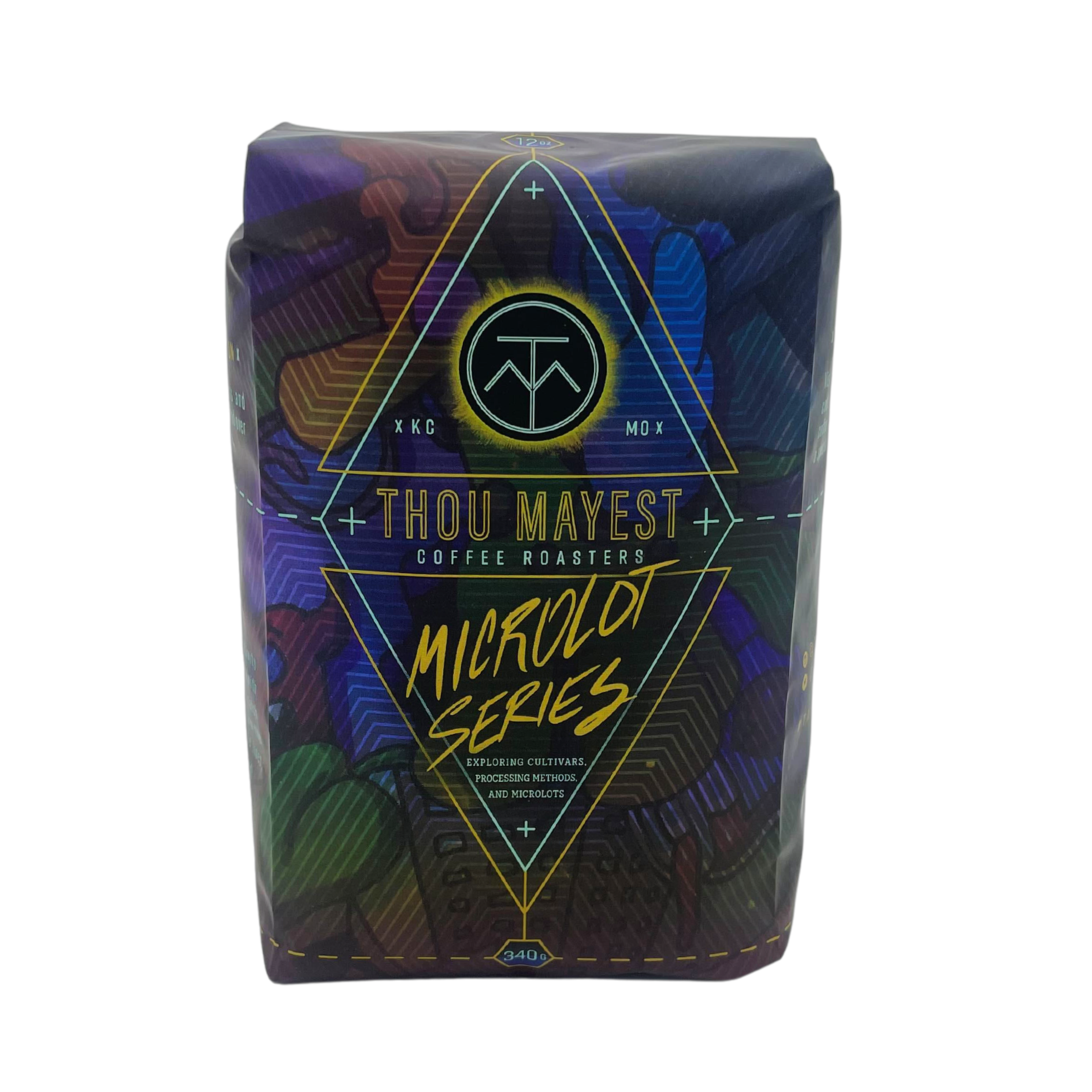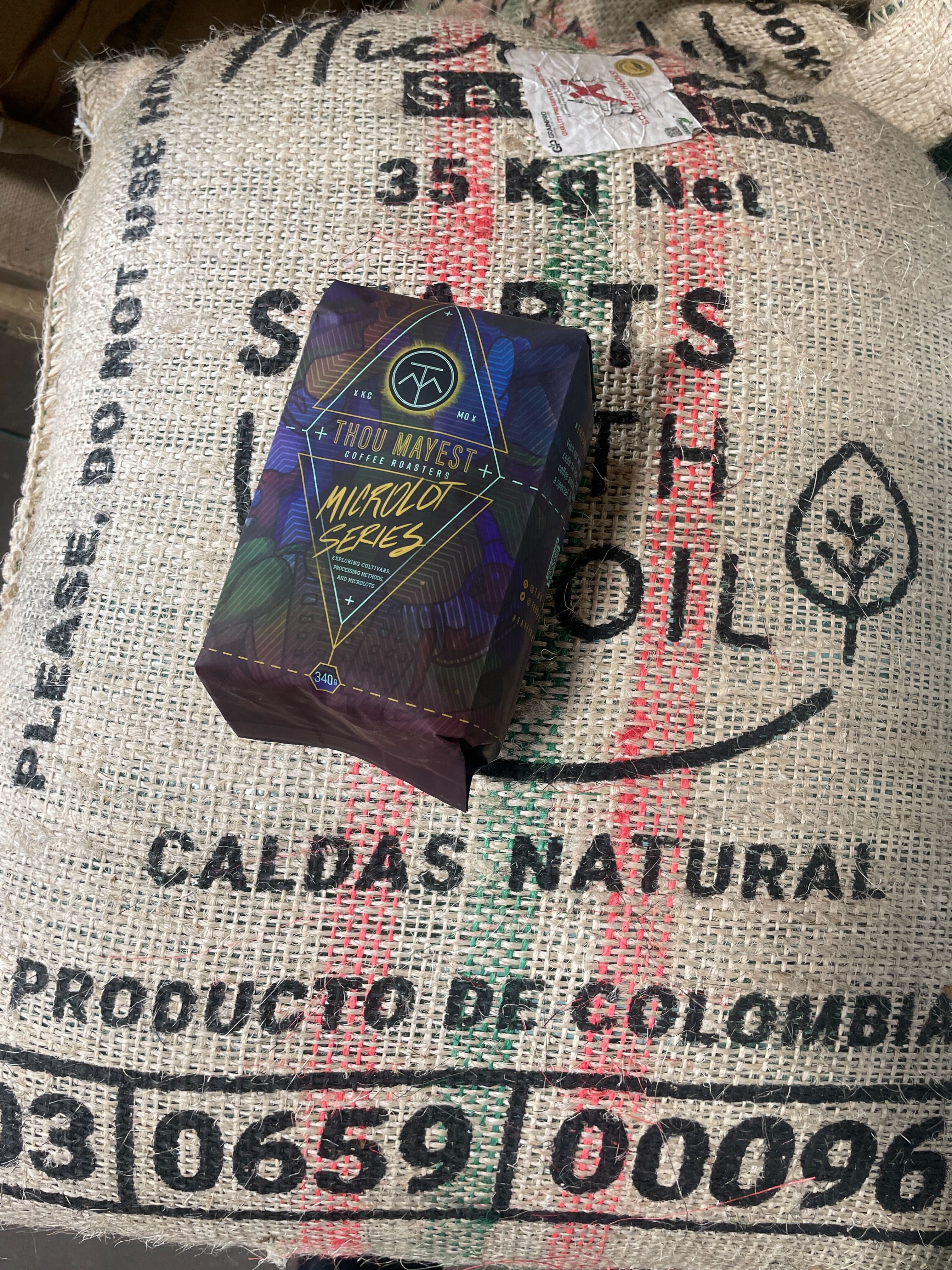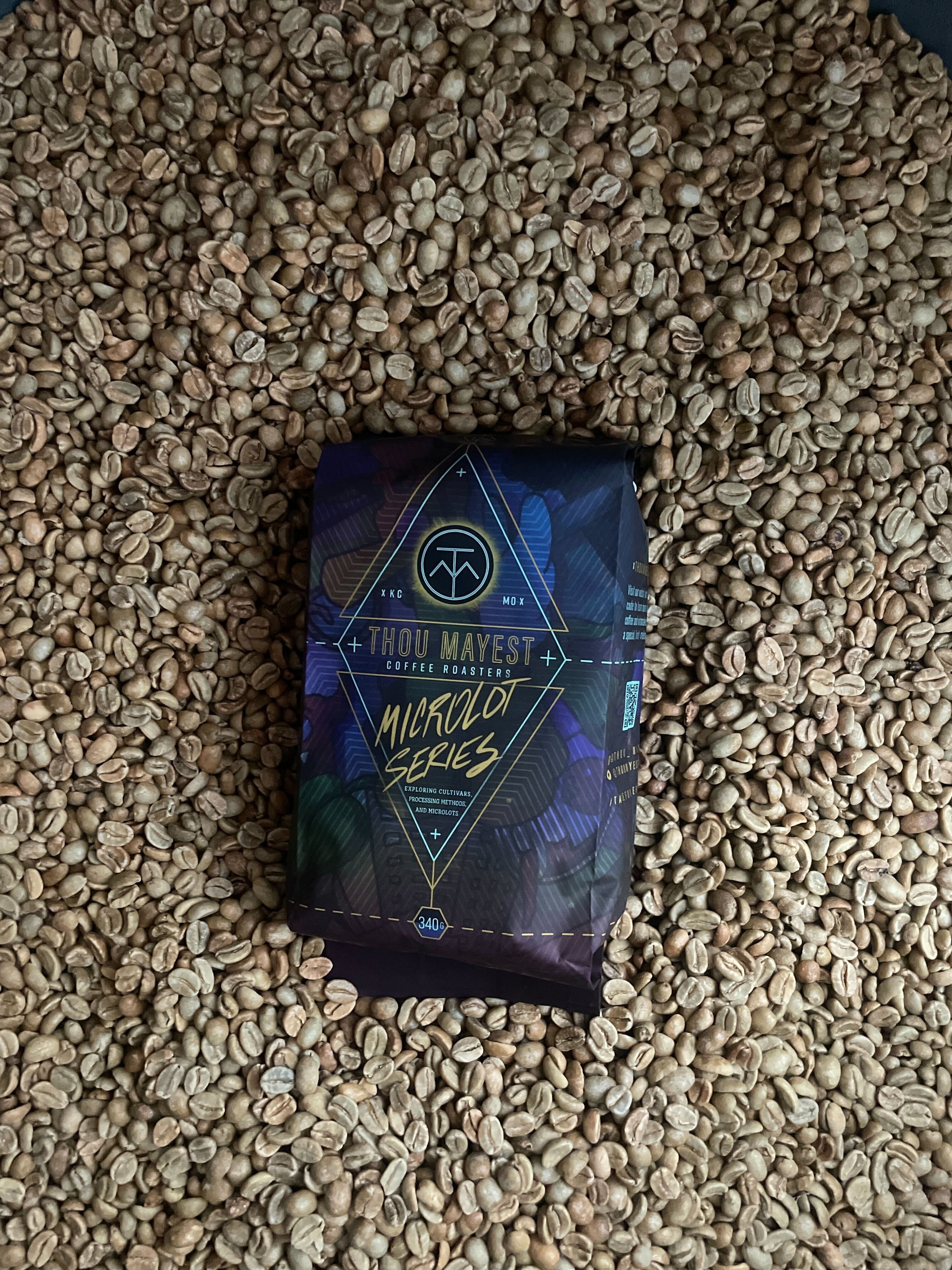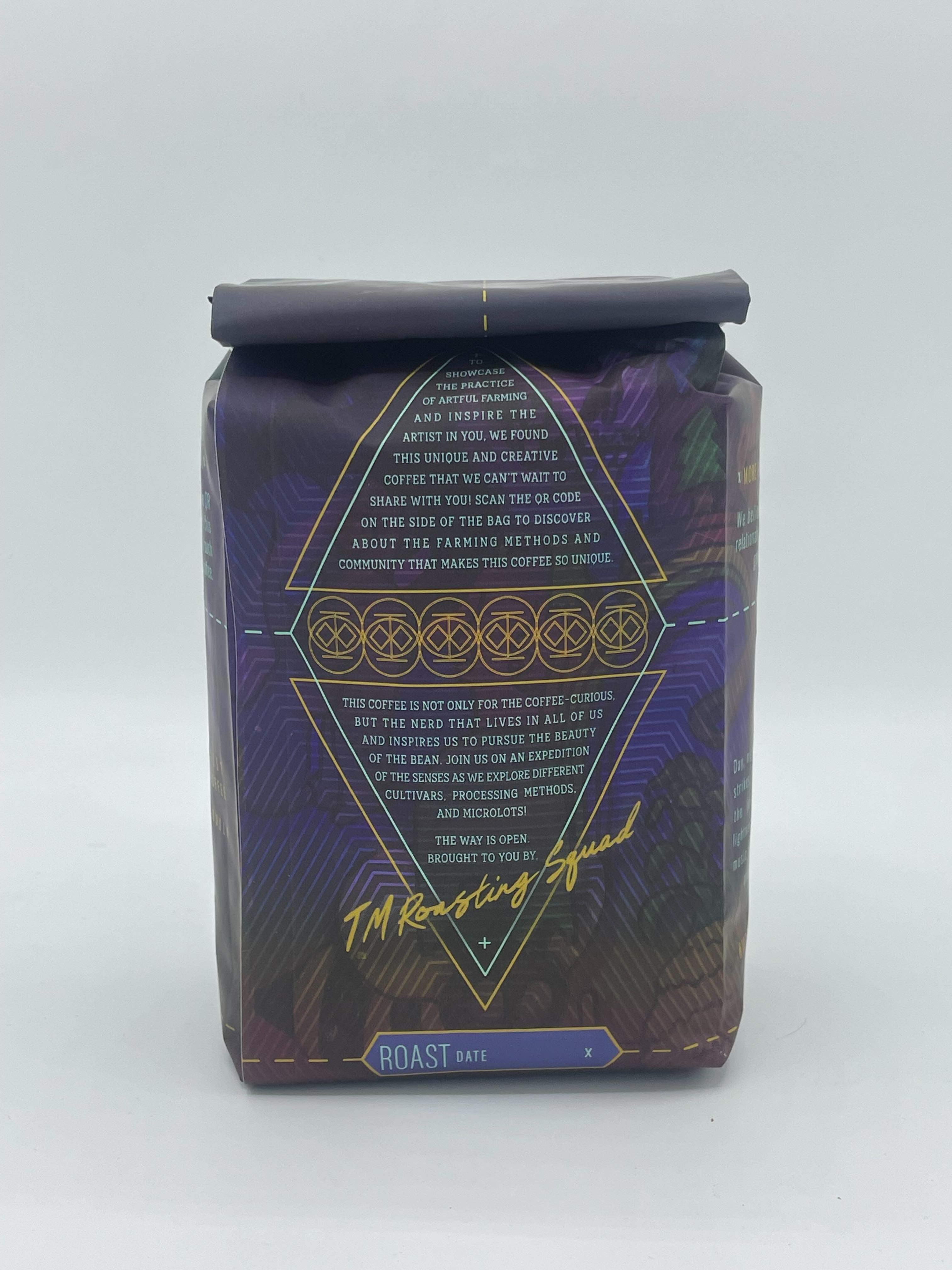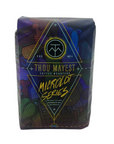
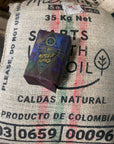


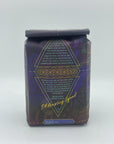

Microlot Series No 1: Natural Colombia - Controlled Fermentation
No 1: Natural Colombia - Controlled Fermentation
Medium Roast
Single Origin - medium roast with bright, fruity notes, and silky-smooth body
The first installment of our microlot series
This is a very special natural process, controlled fermentation, experimental coffee from Finca Palmera in Colombia that is packed with chocolate-covered juicy fruits.
There is a LOT going on with this coffee so pack your bags and hang on as we go on a sensory expedition through regenerative agriculture, fermentation, processing methods and farming practices. This is truly a unique and limited microlot.
*Pro tip - to bring out the most juicy and fruity notes, make this coffee as a cold brew or kyoto dripper for some mind-melting results
About This Coffee
Finca La Palmera was started 50 yrs ago. Starting the coffee shrubs on 12 hectares, the farm now boasts 170 hectares and has moved into the 2nd generation of coffee farmers. Today, Ignacio Rodriguez manages the family farm and applies the same spirited focus to producing specialty-quality coffees, as his father did. Ignacio believes that truly excellent specialty coffee will evoke the “magic of coffee” for drinkers. To this end, he is focused on transitioning from traditional agriculture, not only to a more specialty grade focus, but with sustainable practices and community development at the top-of-mind. Ignacio is building a laboratory and microbiology lab to help him better understand the process at the biological level and ultimately improving his processing for consistency and flavor. Ignacio employs 48 women year-round. These women, many of whom are single mothers supporting their families, ensure high-quality by sorting cherry and parchment to remove any defective beans.
Cultivation
Igancio saves the pulp from processing his washed process coffees and applies it to coffee trees as fertilizer. He is planning to use vermiculture (worm composting) to further process pulp into nutrient-rich fertilizers. Water from processing is used to irrigate his corn crops. The processing operation is fueled entirely by renewable energy from solar panels. Another change Ignacio is making to ensure the highest quality and most sustainable processing is transitioning to lower water-use processing, like this natural-processed coffee where the coffee cherry skin is left on the seed to dry in the sun, imparting the sweetness that makes this coffee so unique. In addition to coffee, Ignacio also grows avocados and maize.

Harvest & Post-Harvest
Coffee is selectively handpicked by laborers and a manager is put in place to ensure only ripe, red cherries are picked. To ensure the highest quality cherry, Ignacio pays harvesters above the going rate. Once the cherries make it to the on-farm processing center, they are floated in water processing tanks to remove over or under-ripes and then transported to moving belts where women hand sort cherry, removing any damaged cherries or unwanted debris. Cherry is placed in crates and transported to the warehouse where they ferment for 36 to 120 hours (depending on the ambient temperature). The cherries are then dried in mechanical dryers to control the temperature and makes it possible for the farm to process coffee consistently on a larger scale. Once dried, coffee is placed in Grainpro bags (helps preserve and protect beans and keeps integrity of the bean in tact) and rested before being prepared for export.
Coffee in Colombia
Colombia has been producing and exporting coffee renowned for their full body, bright acidity and rich aftertaste, since the early 19th century. Colombia boasts a wide range of climates and geographic conditions that, in turn, produce their own unique flavors in coffee. This also means that harvest times can vary quite a bit. Between all its different regions, Colombia produces fresh crops nearly all year round. The increasing focus on the specialty industry is changing the way traders and farmers do business. It is becoming more common for farmers to isolate the highest quality beans in their lots to market separately. These higher-quality lots are often sold under specific brands or stories.
About Caldas Region
Parts of Caldas are located in Eje Cafetero, the Colombian Coffee Growing Axis. Eje Cafetero was the first major coffee producing region in Colombia. For many years, the region held the distinction of being the most well-known and highly-sought-after Colombian coffee region. Tropical rainforest conditions, volcanic soil and a wealth of rivers and streams in Eje Cafetero make the area ideal for coffee growing, and the city of Manizales is located at the heart of the Caldas department in Eje Cafetero. Today, producers in Caldas are increasingly focused on high-quality coffee production. These producers have become common and well-known enough to earn an affectionate colloquial name in the region. They’re called juiciosos (literally: sensible/wise), which in this case means hard working and attentive to detail. In addition to finding ways to perfect existing coffee production methods, juiciosos are experimenting with new processing methods, planting new varieties of coffee, and using regenerative agriculture.
Regenerative Agriculture
To add to an already amazing farm and coffee are the positive environmental and community impacts this coffee creates. It begins with soil nutrition and healthy climatic conditions needed to encourage biodiversity. The farm’s stated goals include:
- Crop diversification based on agroforestry designs
- Decrease dependency on external inputs, such as chemical fertilizers
- Improving organic matter
- Increase net income
A few cents from each green coffee lb. we buy, and that you will undoubtedly enjoy, will go back to helping small scale farmers with their soils and give them the support they need to change along with the yearly fluctuations of a planet in motion. We have noticed and recorded over the past years, that it has become increasingly hot for many coffee varietals and the farmers have to continually plant crops “up the mountain” where the air is cooler, there is more air movement, and less pests and disease. Additional costs to mitigate pests and disease add to the growing burden these farmers carry daily.
One of the solutions to slow migration of crops from going “up the mountain” that is being heavily implemented with this coffee (which is partially why it is so great) is 3rd party support in soil health to make sure the plants are getting essential nutrients to keep them growing strong in their ever-changing environment. This also helps the farmers with the additional support needed to make this a more sustainable crop. This 3rd party support system, called Biodiversal, ensures farmers are getting the answers they need to make growing decisions. For instance, “small scale farmers” are identified, provided with field analytics + soil organic matter measurement identification, business and labor administration, crop stewardship & technical assistance, and product harvest. It is also a tool to equip and educate communities how they can continue getting the best out of their land, while not damaging what they have, which has been a continuing problem in an increasingly evolving agricultural world that revolves around food production.

